Depression's Grip

An estimated 19 million Americans suffer from depression. This sometimes crippling disease can range from mild sadness to moodiness to inability to sleep. Depression can also lead to the kind of full-blown psychosis that drove a loving husband to brutally murder his twin daughters.
"I really wasn't sure that I really wanted to do this interview," Oprah says. "A terrible, terrible thing happened. Two little girls who should be going to kindergarten, learning to read, growing up, are gone. But I agreed ... for one reason only. I wanted to understand and to help you understand how dark of a place you have to be in to kill your own children."
"I really wasn't sure that I really wanted to do this interview," Oprah says. "A terrible, terrible thing happened. Two little girls who should be going to kindergarten, learning to read, growing up, are gone. But I agreed ... for one reason only. I wanted to understand and to help you understand how dark of a place you have to be in to kill your own children."
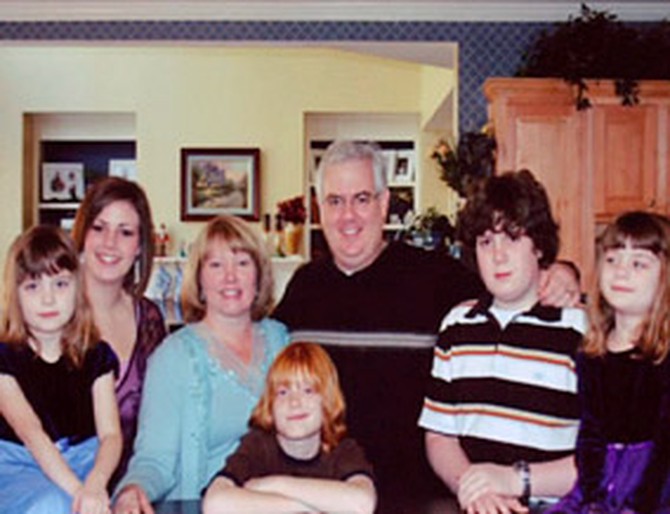
David Crespi was a successful bank vice president in Charlotte, North Carolina. He lived with his second wife, Kim, and their five children—including twin 5-year-old girls Tessara and Samantha.
Friends and colleagues described David as smart, funny and an all-around great guy. They had no idea that he had suffered from debilitating bouts of depression for years. While Kim was aware of her husband's depression, she did not realize the seriousness of his condition.
David says he requested a week off of work to try and deal with his illness. On one of those days, January 20, 2006, Samantha and Tessara were home sick from school. Kim left the girls with David while she ran out to get a haircut. What David never told Kim or anyone else—not even his therapist—was that he was having secret thoughts of killing his family.
Friends and colleagues described David as smart, funny and an all-around great guy. They had no idea that he had suffered from debilitating bouts of depression for years. While Kim was aware of her husband's depression, she did not realize the seriousness of his condition.
David says he requested a week off of work to try and deal with his illness. On one of those days, January 20, 2006, Samantha and Tessara were home sick from school. Kim left the girls with David while she ran out to get a haircut. What David never told Kim or anyone else—not even his therapist—was that he was having secret thoughts of killing his family.
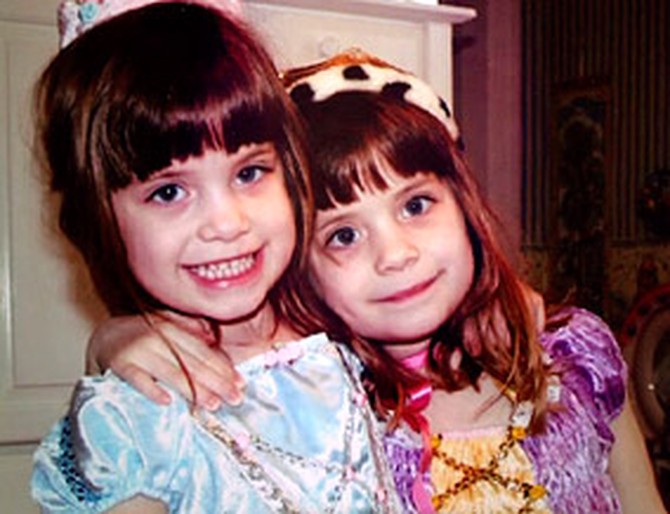
Left alone with his twins, David says he began hearing voices. "I was hearing, 'There's no future. Everything's ruined. Just kill them,'" he says. "I was worried. I remember having thoughts about them suffering from depression also, because they had been off school that day. ... They had colds, but in my mind, I interpreted it as something else."
When Tessara and Samantha asked their dad to play their favorite game, hide-and-seek, he interpreted it as a sign that he should kill them. While the girls hid, David grabbed two knives from the kitchen. He then found Samantha and stabbed her 18 times in the chest, back and head.
Tessara ran and tried to hide from her father. David chased her, pulled her out of an upstairs closet and stabbed her 14 times.
When Tessara and Samantha asked their dad to play their favorite game, hide-and-seek, he interpreted it as a sign that he should kill them. While the girls hid, David grabbed two knives from the kitchen. He then found Samantha and stabbed her 18 times in the chest, back and head.
Tessara ran and tried to hide from her father. David chased her, pulled her out of an upstairs closet and stabbed her 14 times.
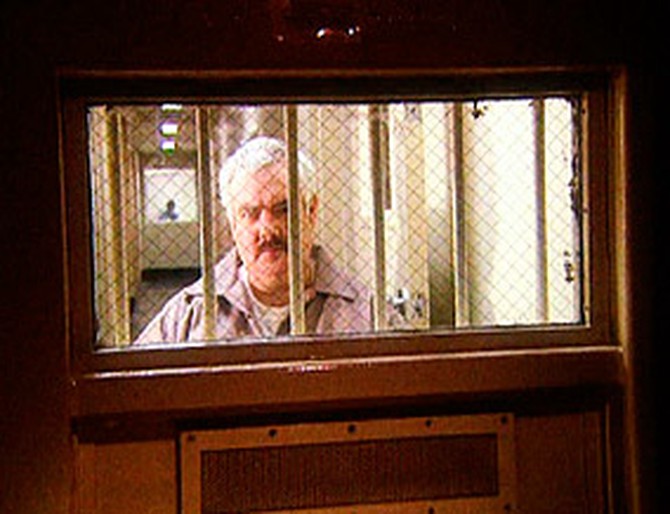
After he realized what he'd done, David says he thought of killing himself by jumping off an overpass near his home. Instead, he called 911. When the operator answered, he calmly told her what he'd done. "I just freaked out and killed them," he said.
911 Operator: What did you do to them?
David: Stabbed them.
911 Operator: You stabbed them?
David: Yes...
911 Operator: Okay, tell me exactly what happened.
David: There's two dead girls. I killed them. I just lost it.
911 Operator: What did you do to them?
David: Stabbed them.
911 Operator: You stabbed them?
David: Yes...
911 Operator: Okay, tell me exactly what happened.
David: There's two dead girls. I killed them. I just lost it.
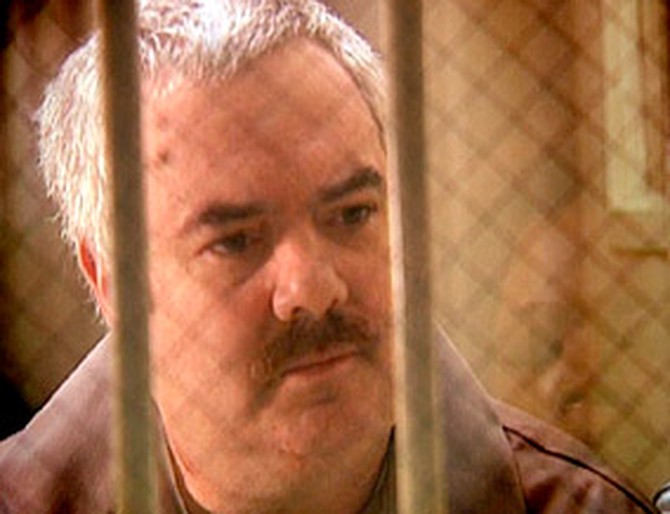
Before police arrived, David changed his clothes, which were covered in his daughters' blood.
David says, at this point, he didn't fully understand what had happened. "It took a while before I realized the horror of what I'd done. ... I just had this numbness, and it's the same numbness that allowed me to do something like this."
He says the only emotion he could muster was that the situation was "wrong." "That's what the depression was. That's how black it was. ... The reasoning is distorted. Everything is so distorted that—that part of your brain isn't working. I knew logically that those were my daughters, but I didn't think about the pain that I was causing them and the loss, and the denial of their right to grow up and be loving people."
David says, at this point, he didn't fully understand what had happened. "It took a while before I realized the horror of what I'd done. ... I just had this numbness, and it's the same numbness that allowed me to do something like this."
He says the only emotion he could muster was that the situation was "wrong." "That's what the depression was. That's how black it was. ... The reasoning is distorted. Everything is so distorted that—that part of your brain isn't working. I knew logically that those were my daughters, but I didn't think about the pain that I was causing them and the loss, and the denial of their right to grow up and be loving people."
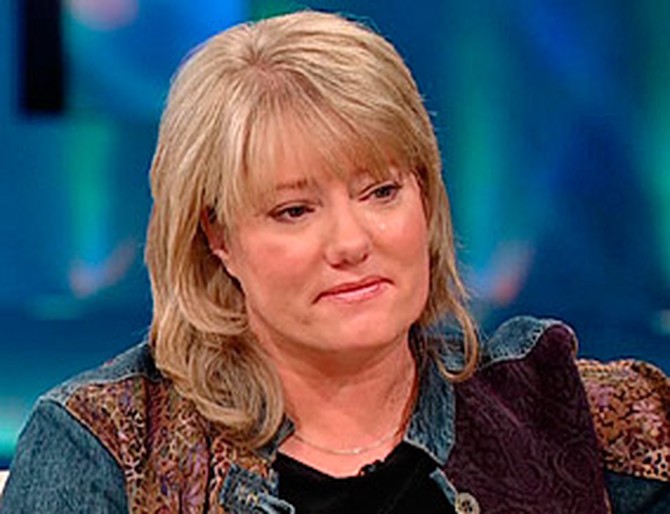
When Kim returned from her haircut appointment, she found a frightening commotion on her street. Police stopped her and led her into her house.
"I saw my friends coming up the street before we went into the house and they came into the house with me," she says. "[The police] wouldn't let me see [David] or the girls. When I got in the house I was already getting those waves that you get when something terrible has happened."
Once they got inside, Kim says, "[The police] said, 'Your daughters have been murdered and your husband has confessed.' ... I couldn't believe it."
David eventually pled guilty to the murders and is now serving two consecutive life sentences in a North Carolina prison.
"I saw my friends coming up the street before we went into the house and they came into the house with me," she says. "[The police] wouldn't let me see [David] or the girls. When I got in the house I was already getting those waves that you get when something terrible has happened."
Once they got inside, Kim says, "[The police] said, 'Your daughters have been murdered and your husband has confessed.' ... I couldn't believe it."
David eventually pled guilty to the murders and is now serving two consecutive life sentences in a North Carolina prison.

Although David was honest with his wife and therapist about his depression and suicidal thoughts, he hid his darkest secret. For 11 years, David says he had thoughts of killing his wife and five children. "I didn't think [the thoughts] were real," he says. "Why would I discuss something that wasn't real that could maybe get my kids taken away from me?"
David was able to suppress these thoughts until the day he had his "psychotic episode." During Tessara and Samantha's murders, David says his psychosis made him think of his actions as "tasks." "[I thought], it's a task I have to do. It's not anything related to, 'These are my daughters. These are lovely children.' It's just a task," he says.
In this state of depression, David says he also convinced himself that if he killed one girl, he'd have to kill both. "They were twins and in parenting them, you do things together," he says. "So in the psychotic state I was in, I couldn't show favoritism. ... It's just sick."
David was able to suppress these thoughts until the day he had his "psychotic episode." During Tessara and Samantha's murders, David says his psychosis made him think of his actions as "tasks." "[I thought], it's a task I have to do. It's not anything related to, 'These are my daughters. These are lovely children.' It's just a task," he says.
In this state of depression, David says he also convinced himself that if he killed one girl, he'd have to kill both. "They were twins and in parenting them, you do things together," he says. "So in the psychotic state I was in, I couldn't show favoritism. ... It's just sick."
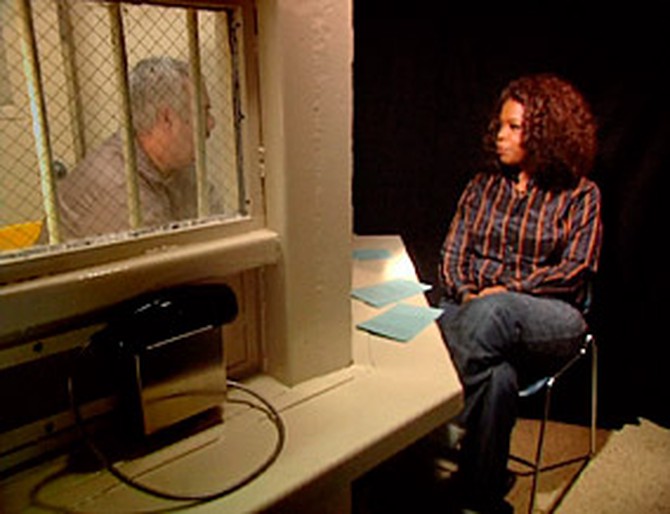
In past years, Kim says David would stop sleeping when he was dealing with a bout of depression. Doctors prescribed sleep aids, but they didn't seem to help, she says. Then, David would get anxious and start taking anti-anxiety medication. Finally, doctors would prescribe antidepressants.
"Sometime in that whole regiment he would get more depressed," she says. "I [would] think he was going to work, and he would go and drive off. I would say, 'What have you done? I can't get a hold of you on the cell phone.' And he'd say, 'I'm looking for a place to die.'"
Kim remembers her husband saying that, some days, the world was just too dark. Kim says she asked David if he thought the world was too dark for their children and if he'd ever hurt them. He said "no."
If the world was such a dark place for David, Oprah wants to know why he didn't kill himself instead of his daughters. "I had made [suicide] attempts before, and I had promised my wife that I wouldn't kill myself," he says.
"Sometime in that whole regiment he would get more depressed," she says. "I [would] think he was going to work, and he would go and drive off. I would say, 'What have you done? I can't get a hold of you on the cell phone.' And he'd say, 'I'm looking for a place to die.'"
Kim remembers her husband saying that, some days, the world was just too dark. Kim says she asked David if he thought the world was too dark for their children and if he'd ever hurt them. He said "no."
If the world was such a dark place for David, Oprah wants to know why he didn't kill himself instead of his daughters. "I had made [suicide] attempts before, and I had promised my wife that I wouldn't kill myself," he says.
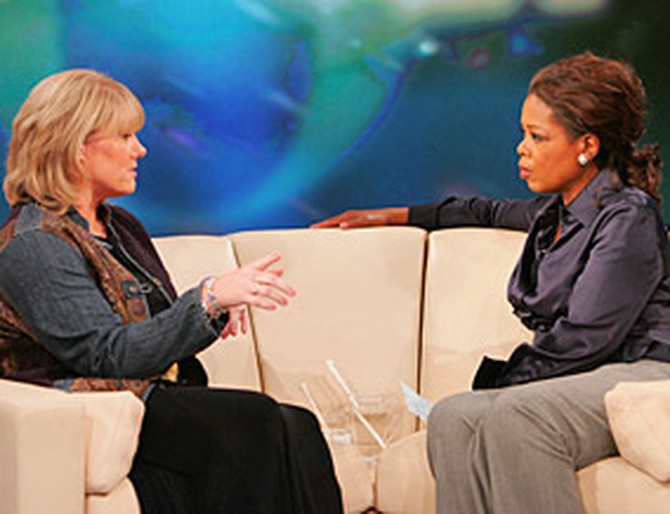
When Kim and David were married, she promised to stay with him, for better or for worse...and she intends to make good on her vows. "I am so sorry that this happened for everybody...for him, for me, for our children. But it happened," she says. "I can choose to love him or I can choose to turn away."
Kim has chosen to stay with her husband. She writes to David often and visits him in prison whenever possible. "I loved being married to David...I still love being married to David," she says.
Currently, Kim and her children, whom she says are doing well, live in the house where Samantha and Tessara were killed. "I know a really horrible thing happened right here, but this is my home," she says. "That doesn't erase all the good things that have happened in this house. That's why we want to live here, because this is where they laughed, where they danced, where they played, and we love it here."
The day David killed their daughters, Kim says her husband was ill in a way that people don't understand. "I don't really even think I needed to forgive him because I don't think he controlled what he did that day," she says. "So if he needs my forgiveness, which he's asked [for], he has it. He absolutely has it."
Kim has chosen to stay with her husband. She writes to David often and visits him in prison whenever possible. "I loved being married to David...I still love being married to David," she says.
Currently, Kim and her children, whom she says are doing well, live in the house where Samantha and Tessara were killed. "I know a really horrible thing happened right here, but this is my home," she says. "That doesn't erase all the good things that have happened in this house. That's why we want to live here, because this is where they laughed, where they danced, where they played, and we love it here."
The day David killed their daughters, Kim says her husband was ill in a way that people don't understand. "I don't really even think I needed to forgive him because I don't think he controlled what he did that day," she says. "So if he needs my forgiveness, which he's asked [for], he has it. He absolutely has it."
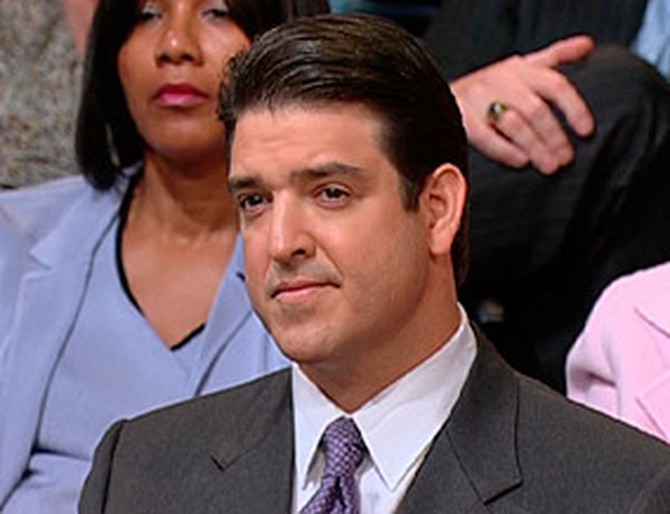
Depression is a disease that strikes millions every year. In fact, one-third of Oprah's audience admits that they've been depressed at some time in their lives.
Forensic psychiatrist Dr. Michael Welner says depression is actually a biochemical condition occurring deep within the brain. Nerve cells stop communicating properly with each other, and mood, feelings and thinking become off kilter when someone is depressed.
Dr. Welner shares common signs of depression:
If you continually feel sad and have suffered from at least two of these symptoms for two weeks or more, Dr. Welner says you should seek medical attention.
Forensic psychiatrist Dr. Michael Welner says depression is actually a biochemical condition occurring deep within the brain. Nerve cells stop communicating properly with each other, and mood, feelings and thinking become off kilter when someone is depressed.
Dr. Welner shares common signs of depression:
- Sleep disturbance
- Loss of pleasure
- Excessive guilt
- Excessive worry
- Self-deprecating thoughts
- Impaired energy
- Weight loss
- Agitation
- Thoughts of death.
If you continually feel sad and have suffered from at least two of these symptoms for two weeks or more, Dr. Welner says you should seek medical attention.
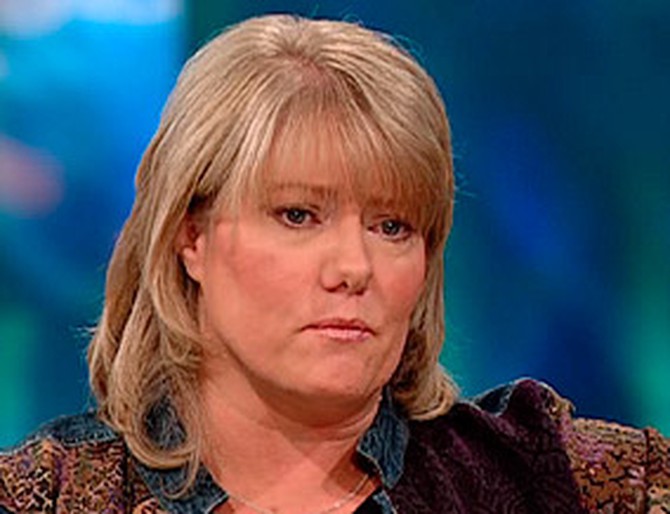
The week David committed his unthinkable crime, Kim says he had started taking a new anti-depressant and was exhibiting strange behavior. She says David was very antsy and paced around the house.
In prison, doctors diagnosed David with bipolar disorder, a more serious form of depression that affects 2 million Americans. "[Bipolar disorder] is a tremendously morbid disease," Dr. Welner says. "Instead of being slowed down, a person has a decreased need for sleep because they're euphoric."
Signs of bipolar disorder can include:
In prison, doctors diagnosed David with bipolar disorder, a more serious form of depression that affects 2 million Americans. "[Bipolar disorder] is a tremendously morbid disease," Dr. Welner says. "Instead of being slowed down, a person has a decreased need for sleep because they're euphoric."
Signs of bipolar disorder can include:
- Socially inappropriate behavior
- Inappropriate spending
- Grandiose and unregulated ambition
- Sexual promiscuity
- More likely to abuse drugs

Hopelessness is a key factor that characterizes severe depression. In the book Darkness Visible, author William Styron describes how it feels when darkness takes hold.
"In depression, the pain is unrelenting and what makes the condition intolerable is the foreknowledge that no remedy will come. Not in a day, an hour, a month, or a minute. If there is mild relief, one knows that it is only temporary. More pain is going to follow. It's hopelessness even more than the pain that crushes the soul," he writes.
If you know someone suffering from depression, Dr. Welner says the first thing you should do is focus on minimizing their hopelessness. Then, no matter how much the depressed person withdraws, don't allow them to isolate themselves. "If they shut you out, don't take it personally," Dr. Welner says. "That's when it's the illness talking."
"In depression, the pain is unrelenting and what makes the condition intolerable is the foreknowledge that no remedy will come. Not in a day, an hour, a month, or a minute. If there is mild relief, one knows that it is only temporary. More pain is going to follow. It's hopelessness even more than the pain that crushes the soul," he writes.
If you know someone suffering from depression, Dr. Welner says the first thing you should do is focus on minimizing their hopelessness. Then, no matter how much the depressed person withdraws, don't allow them to isolate themselves. "If they shut you out, don't take it personally," Dr. Welner says. "That's when it's the illness talking."
Published 11/14/2006

